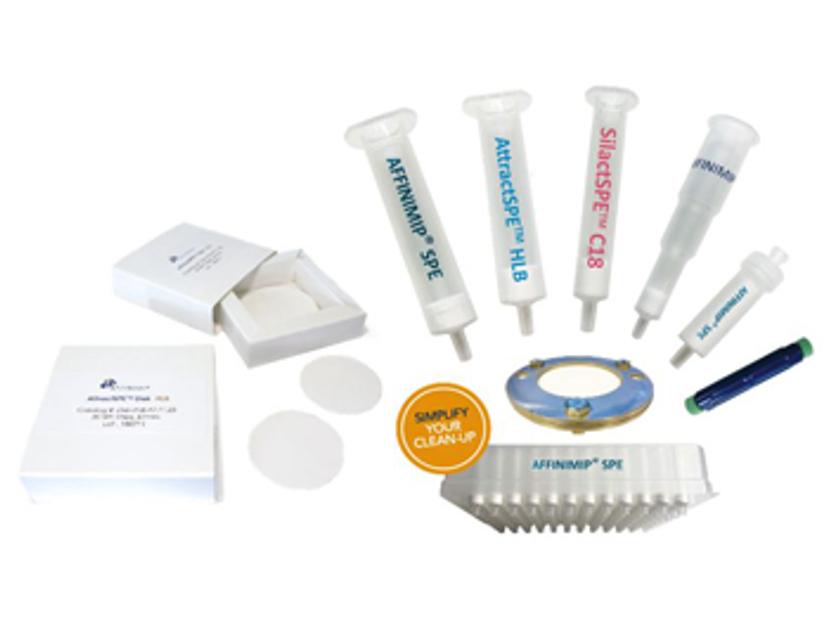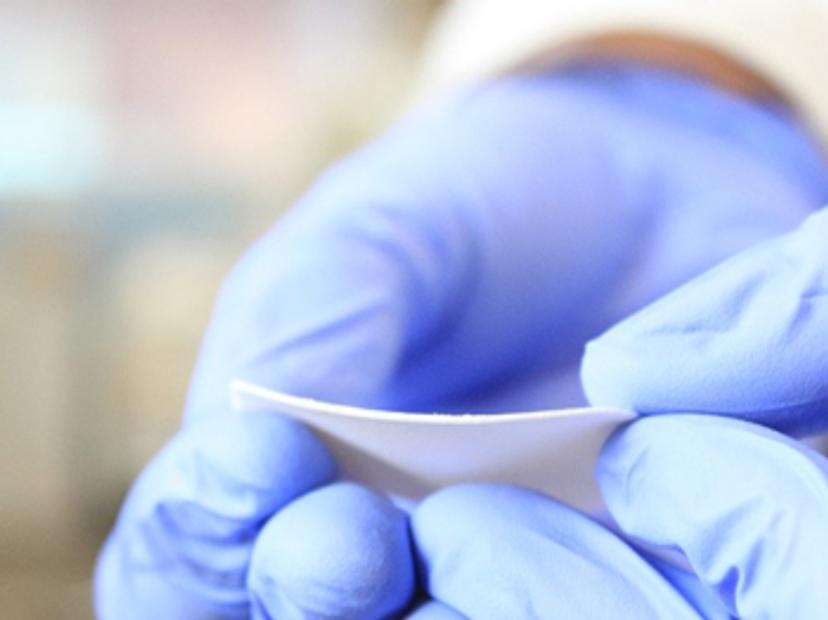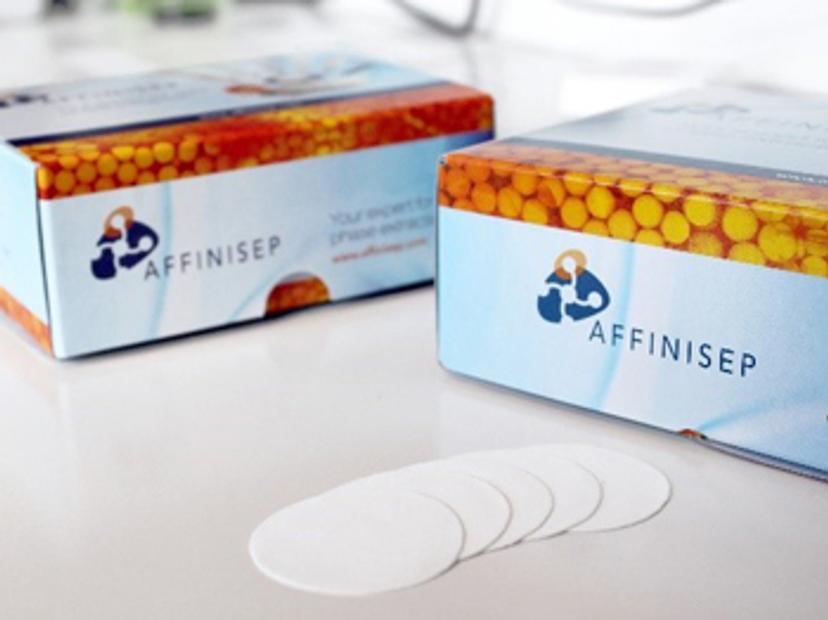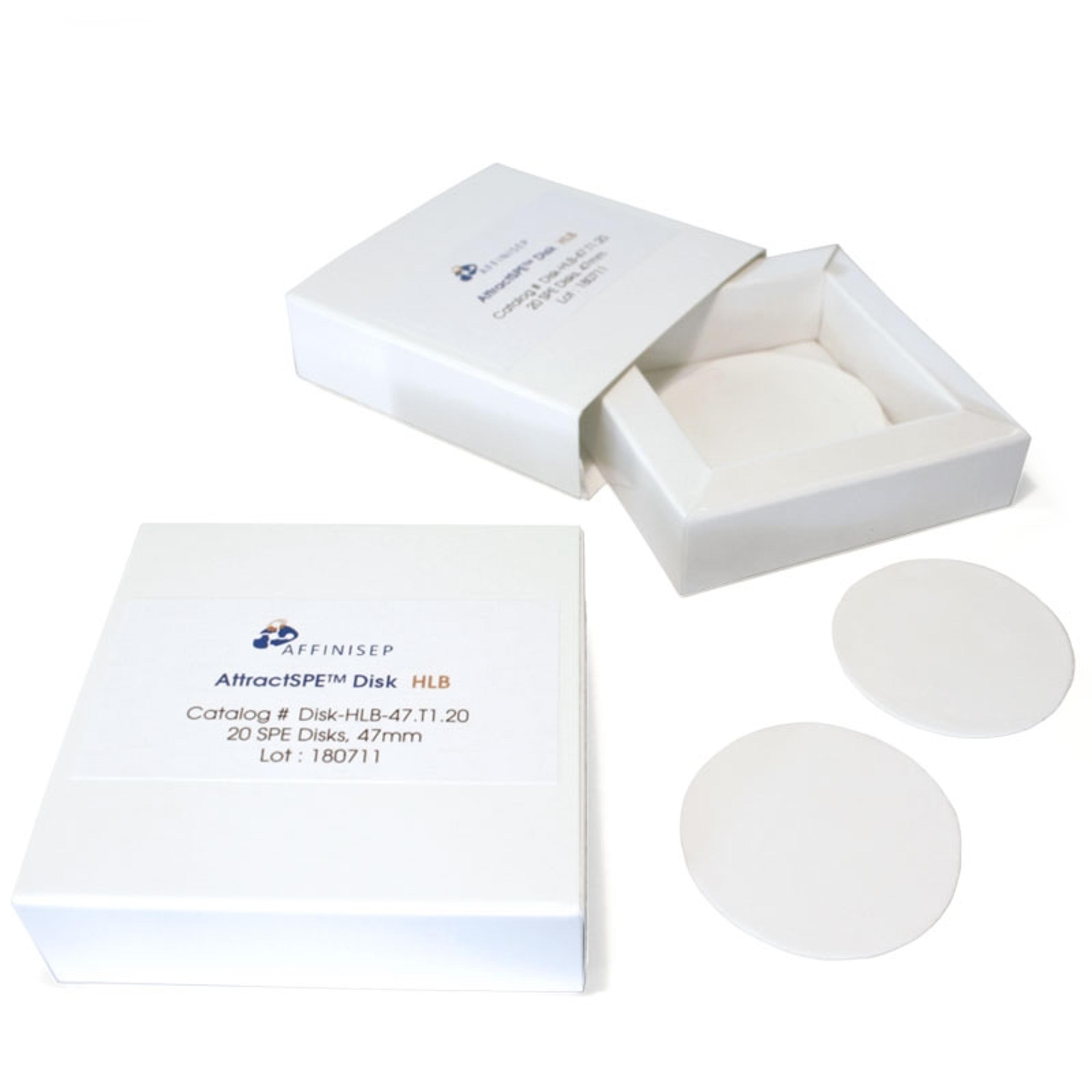How scientist innovation is driving the development of new environmental testing solutions
Jim Fenster offers an inside look at how the new AFFINISEP and Gilson partnership aims to improve solid phase extraction sample processing
6 Aug 2019

Solid phase extraction (SPE) is a sample preparation method that separates and concentrates analytes from solution prior to analysis. SPE addresses the problems often encountered with liquid-liquid extraction (LLE), providing a rapid method that can be automated and is effective for even complex matrices. This technique can be used to isolate analytes of interest from a wide variety of matrices, including urine, blood, water, beverages, soil, and animal tissue, and is a commonly used technique in environmental testing. AFFINISEP specializes in SPE consumables, including the AttractSPE™ Disks Environment, which have been designed for environmental applications such as water analysis, air sampling, contaminants enrichment. The AttractSPE™ Disks Environment are also compatible with many existing EPA methods.
In this exclusive SelectScience interview, we speak to Jim Fenster, Business Development Director for AFFINISEP USA, about AFFINISEP’s product offering and its exciting new distribution partnership with Gilson. Here, Fenster also discusses the applications and advantages of the AttractSPE™ Disks, including insight into how customers are using these disks in innovative and unexpected ways.
Q: Can you describe the AttractSPE™ Disks?

JF: AttractSPE™ Disks are thin, dense and uniform membranes for extraction/separation, purification, and concentration of analyte molecules. Our disk is basically a very flat pancake that has active sorbent material built into it. We have three different sizes of disks that will accommodate different applications on the market; we offer it in a 25mm, a 47mm, and a 90mm diameter size. Of course, these disks are SPE devices in the same way that SPE cartridges are.
For example, an environmental lab that is analyzing semi-volatile organic compounds from water, the typical sample size is approximately one liter and the maximum flow rate through an SPE cartridge is about 10 to 20 milliliters a minute. Therefore, it would take maybe an hour to an hour and a half to run your sample completely through the disk or cartridge. Because of the higher capacity that we offer, the SPE disks allow a much faster flow rate (approximately a tenfold increase). So, instead of 10ml a minute, you're talking about 100ml a minute, which gives you the ability to process a 1L sample in 10 minutes.
Q: What sets the AttractSPE™ Disks apart from traditional methods and applications?
JF: The distinguishing thing is that this product was designed for and focused on the environmental market and the biomolecular market. Thanks to their unique advantage, AttractSPE™ Disks are useful as well for purification of very small sample volumes in proteomics, genomics, metabolomics, biomarker discoveries, and biological applications. They are applied for spinnable, automatable and high-throughput microextraction.
AttractSPE™ Disks offer outstanding sample preparation efficiency and reproducibility of results. Since the diffusion distance between particles is minimized, adsorption is more efficient, and extraction can be accomplished using very low sorbent mass.
These properties show a significant improvement in mass transfer kinetics compared to traditional packed SPE products. AttractSPE™ Disks are self-standing and require no frits for immobilizing the column bed (unlike traditional SPE products), allowing 100% recovery of the original sample volume.
In these markets, the disks are being used as stage tips to clean, desalt, and clear up peptides from complex mixtures prior to mass spectroscopy analysis. Basically, customers are using AttractSPE™ Disks as SPE clean-up devices. They've been doing this by taking a hole punch and punching out little tiny disks from the AttractSPE™ Disks. Then they're putting these in pipette tips. Customers have been doing this themselves for a long time and it works brilliantly.
We will shortly launch AttractSPE™ Disks under the following formats for microextraction:
- AttractSPE™ Disks Tips – Stagetips
- AttractSPE™ Disks Spin Columns
- AttractSPE™ Disks 96 well-Plate
- AttractSPE™ Disks Cartridges
Now, the environmental market probably represents about 11% or 12% of the analytical chromatography market. So, although this is a valuable tool, if it was only marketed for environmental research uses, a lot of companies would consider this too niche. So, within our line of AttractSPE™ disks, we have two lines or sub-products: we have the AttractSPE™ Disks Environmental for environmental applications and we have the AttractSPE™ Disks BioMol for the biomolecular market that's intended for peptide dissolving. You can imagine a lot of molecular biologists or grad students or research assistants manually punching out a lot of little disks out of our bigger disks. Based on this, we're starting to get better ideas for products down the road for them. We’re now partnered with Gilson, a company that makes pipettes and also automated SPE. As you can imagine, there is a huge scope of different products you can spin off this partnership.
Q: How did your partnership with Gilson come about?
JF: Like any partnership, the venture between AFFINISEP SAS and Gilson has been years and years in the making, with its official start beginning in January 2019. The collaboration with Gilson gives us strong distribution access to the North American market. In return, our products and services complement Gilson's ASPEC® line of automated SPE instruments and bring smart application-specific kits, ready to use pre-developed methods, and the highest level of scientific support to scientists. Primarily, we're focusing on the food and environmental marketplace, as well as biological applications, but we are also actively recruiting other distribution partners to help us get into other markets.
Q: What do you think is the future for AFFINISEP and your partnership with Gilson?
JF: I think it's a very, very bright future. Firstly, you now have two established companies that are producing products with a good presence on the market. Secondly, and most importantly, the whole area of peptide purification and cleaning up is increasing every year and, along with the environmental market, is not going away any time soon.
We're inundated with different stresses on the environment every day and a great example of this right now is flame retardants. These perfluorooctanoic acids (PFOAs) are available in fire retardant foam which can cause a lot of contamination of groundwater around where these are used. In fact, the Environmental Protection Agency (EPA) is seriously looking at PFOAs as potential carcinogens so much so that there is an EPA method for drinking water, EPA 537, covering 14 of these flame retardants. As a result, we're currently developing a custom disk for this type of application.
So, we're able to make things happen and get these products on the market very quickly. We also have a huge product line of solutions for SPE, with a good variety and scope of chemicals. AFFINISEP has approximately 800 different product references right now. Of course, of those, maybe 100 are our biggest selling products. Based on the initial reaction that we're getting from the market, I believe this company is going to continue to grow for the next 10 to 20 years.
Q: Customization is a huge part of your business. How well has that worked since you've expanded to North America and has it changed at all?

JF: It hasn't changed at all. We have very good communication with the R&D department in France as we're on the phone with them probably twice a week discussing different applications. Obviously, our market is to sell off-the-shelf solutions, but we have already had a couple of custom projects requested by customers. The R&D department has been very quick to put prototype pieces of a kit together, and we've been able to get them into customers' hands very quickly. So really, I don’t think this aspect of the business has been impacted at all. If anything, it may have gotten faster because we want this new venture to succeed, so customization is being prioritized.
AFFINISEP's offering includes glass cartridges, inline columns, a large variety of conventional Silica SPE packings, and the AttractSPE™ polymeric packing line. The company also offers AFFINIMIP® products, which are molecularly imprinted polymer (MIP) products that allow for custom SPE packing that is physically and stereochemically in line with a customer’s chosen target molecule, and, as a result, provide a very clean separation even for very difficult matrices.
Do you use AFFINISEP products in your lab? Write a review today for your chance to win a $400 Amazon gift card>>

